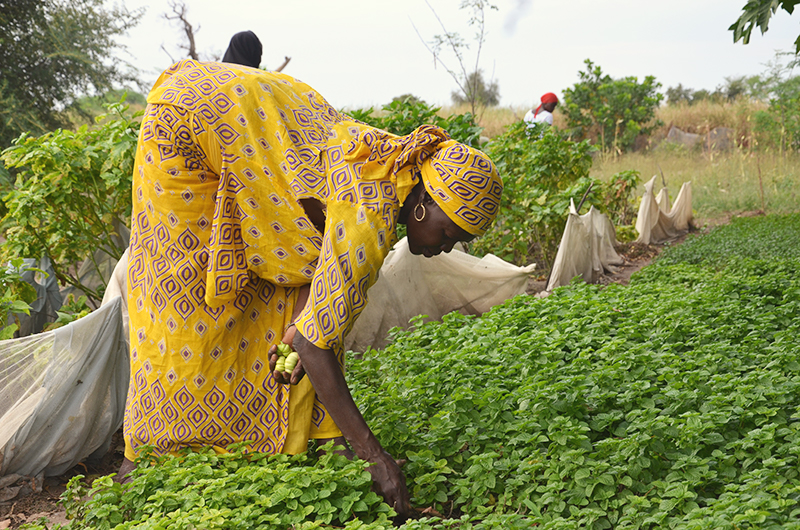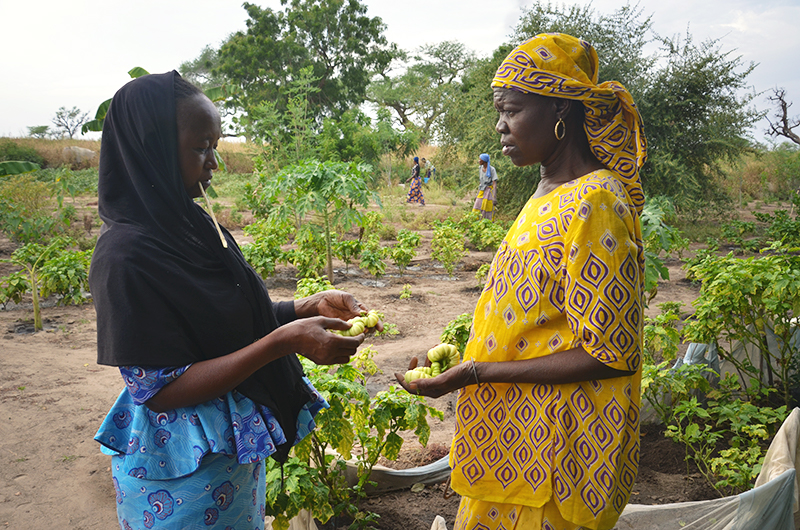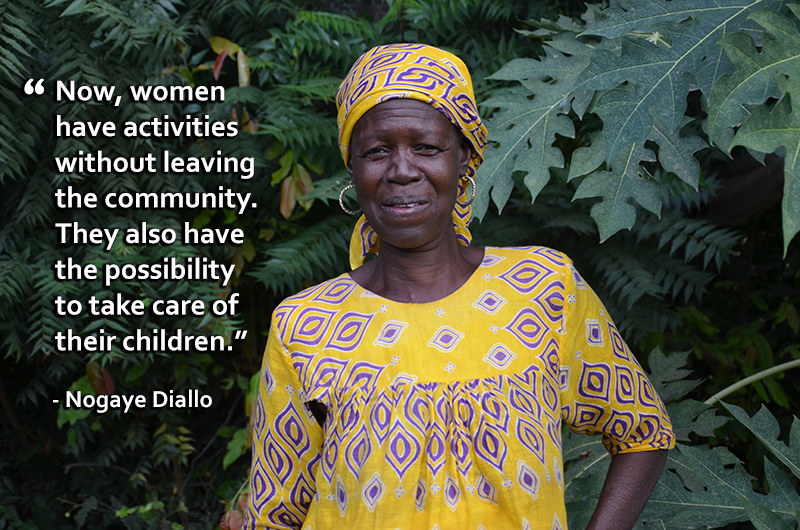Let’s check in with Thienaba! A community that graduated from CREATE!’s self-development program one year ago. CREATE!’s team of technicians check in with graduated communities once a week to make sure the solar-powered technology and other activities are running smoothly. However, graduated villages are still completely self-sufficient and run the projects on their own.
Cultivating Self-Sufficiency Through Community Gardens
Meet Nogaye Diallo, a mother supporting her family of five in Thienaba. Having grown up in rural Senegal, Nogaye has experienced the many hardships that come with living out here: the lack of water and fresh vegetables as well as limited income generating opportunities. She’ll never forget the many miles she used to travel in order to purchase produce for her family in an expensive market. However, things changed once Nogaye and the other women began to cultivate a community garden in Thienaba.

Mint, or “nana”, is a favorite in Senegalese tea. Nogaye is harvesting nana from the community garden to sell in the market.
Community Gardens Improve Health & Food Security
Since the women began to produce their own vegetables in the community, overall health and food security has improved. “We have our own garden site in the community and eat a lot of vegetables that I grow myself,” Nogaye describes. She says that since her family started eating fresh vegetables every day, she has seen an increase in their health as well as her own. This has been the case for multiple families across the village.
Not only has the community’s health increased with regular access to vegetables, but women are saving money and time by cultivating food within the community. Nogaye tells us, “Women have activities without leaving the community. They also have the possibility to take care of their children.”
Expanding New Opportunities
With more time comes more opportunity for income-generating activities. Nogaye and other community members in Thienaba decided to take on the project of poultry farming. “Chicken production is very profitable, and the price is cheaper in the community than in the market,” she explains.
Nogaye recalls that she could only afford to purchase chicken at the market for her family during the holidays. Today, however, Thienaba has multiple poultry sheds throughout the village where families raise chickens to eat and sell. Families in the community will often sell their chicken to their neighbors at a more affordable price. This way, everyone has access to an excellent source of protein!

Nogaye and Arame take a moment to look over the fresh produce they harvested from the community garden.
We are thrilled to see that Nogaye and the community of Thienaba are thriving independently! This is the kind of success that we hope will spread through communities across rural Senegal. But Thienaba’s success wasn’t without its hardships. It took many long days of hard work under the relentless sun. It took community collaboration, strength, and all-round determination. There is a Wolof proverb in Senegal: Ku bëgg akara dangay ñeme kanni. This translates to “nothing worth having comes easy”. A lesson we can all learn from!

